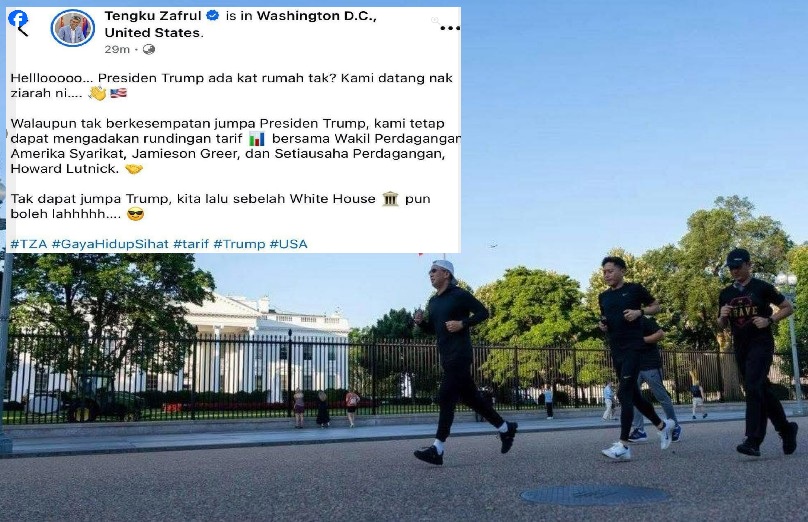By A Sivarajan
HEALTH or the economy? Putrajaya is desperately juggling both these issues, whether to continue the movement control order (MCO 2.0) beyond Feb 4 since the COVID-19 infection figures seem to be still hovering around 3,000-5,000 cases daily.
Obviously, health will have to be prioritised over the economy. But if MCO 2.0 is extended to curb the increase in cases, the rakyat will need a safety net to fall back on when non-essential sectors of the economy are expected to be shut down.
Those that have lost their jobs since last MCO (March 2020) have attempted to start small food and beverage businesses, putting up small stalls around the city.
But they are still having a difficult time to survive under the MCO 2.0. With offices closed and people working from home, they are struggling to see returns after having invested their savings to establish their stalls.
With so many uncertainties surrounding the pandemic, long term impacts will see a significant portion of the B40 and even the M40 being pushed to poverty.
Even though the Finance Ministry announced a speedy release of the Bantuan Prihatin Rakyat (BPR), brought forward to February from May, the first phase cash assistance of RM300 will not be enough.
Finance Minister Datuk Seri Tengku Zafrul Abdul Aziz stated that around 8.1 million people will benefit from this scheme that will cost the Government RM6.5 bil. Families with a household income of less than RM2,500 a month with one child will receive RM1,200. For those eligible, RM300 would be the first phase cash handout from the RM1,200.
But how much impact will it have in cushioning the financial burden of these families, especially those who have abruptly lost their income?
Every day we hear how concerned individuals, NGO’s and elected representatives have to distribute food packs and groceries to hundreds of families struggling to put food on the table daily. Living costs for a family of five in the city would easily range from RM2,500 to RM3,000 a month.
So, how far can you stretch the RM300?
Here is where we find a gap in the various programmes announced by the Government since Budget 2021. Unfortunately, neither the BPR nor other initiatives under the Welfare Department (JKM) will be able to protect families that have lost their incomes or a significant portion of them.
These initiatives cannot ensure their basic needs to get food on the table, keep a roof over their heads and continue to provide education and healthcare for their families.
Furthermore, these programmes are unable to provide a consistent monthly cash assistance to affected families until they are able to stand on their own feet again.
Since MCO 1.0, Parti Sosialis Malaysia (PSM) has argued that the Government needs to have a long-term plan to put in place monthly cash handout schemes modeled after the Universal Basic Income (UBI) concept.
We suggested a monthly RM1,000 basic income assistance to these targetted households. From the 8.1 million supposed recipients of BPR, the Government should target those who have completely lost their source of income.
Various experimental studies have proven that when families are supported by UBI, they would rapidly recover from financial distress and bounce back to their income level as before.
Families that receive no such assistance tend to fall further into a spiral of poverty, trapped in debts, evicted from their homes, haunted by loan sharks and so on. These families often suffer depression and sometimes even consider suicide.
It is disappointing that Putrajaya is still skirting around these realities faced by the rakyat and failing to look beyond the BPR- or BPN-styled cash assistance schemes. Instead of spreading out funds through various schemes under BPR, JKM and others (which overlap sometimes), the Government ought to focus on a UBI-modeled scheme targeting those households that need it the most.
A monthly cash transfer of RM1,000 per month is more significant for families that have lost all income compared to a RM 500 a year cash transfer to households that still has a steady monthly income of RM 4,001 to RM5,000. Under the current BPR scheme, incomes of those that can apply for the aid are spread out from less than RM2,500 up to RM5,000.
Thus, PSM again urges the Government to immediately implement a UBI-modeled cash transfer scheme to assist these many families that are suffering in silence. Any further delay in rolling out such a scheme will prove disastrous to needy Malaysians. – Jan 31, 2021
A Sivarajan is the secretary-general of Parti Sosialis Malaysia.
The views expressed are solely of the author and do not necessarily reflect those of Focus Malaysia.









